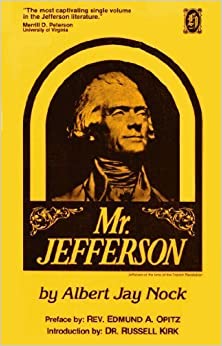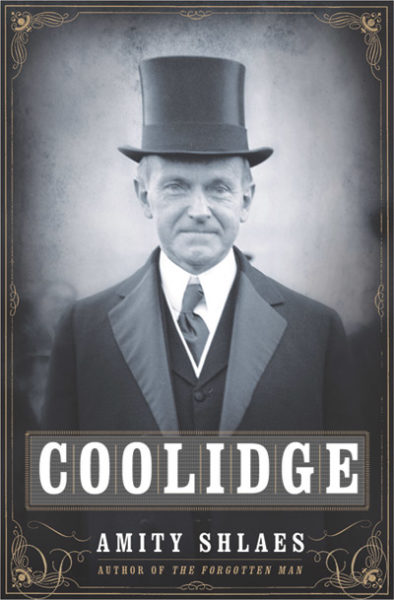World War Two
Published 7 Aug 2021The Axis Forces are on the move on the Eastern Front and in the Caucasus, but this week the Allies begin an offensive of their own: this week come Allied landings and attacks on Guadalcanal and nearby islands, the first American offensive against the Japanese.
(more…)
August 8, 2021
Guadalcanal – Allies Take the Initiative – WW2 – 154 – August 7, 1942
Presidential biographies
As I’m not an American, I haven’t read many biographies of US Presidents (just Jefferson, Jackson, Lincoln, Grant, and Coolidge if I remember correctly), so I can’t really comment on this project by a man who read and ranked 240 of them:
In 2012, an investment banker and avid history reader named Stephen Floyd began making his way through the American presidents, one biography at a time. It was a way to fill time while commuting to Hong Kong on twelve-hour flights. “I got tired of drinking free wine and watching cheap movies,” he says. Starting with George Washington, he read 240 titles (123,000 pages) in six years or, to be precise, 2,243 days, bringing him up to Obama. (Floyd is not alone in this pursuit: as the Washington Post reports, reading biographies of all the presidents is a thing).
Along the way, Floyd blogged about the books he read at bestpresidentialbios.com where fellow enthusiasts commented on his reviews, sometimes challenged his opinions, and suggested additional biographies to read. His blog posts improved to the point where he became a reliable and knowledgeable reviewer, as good as most professionals. When Stephen Floyd says David McCullough’s much-celebrated biography of John Adams is the second-best biography of John Adams, you need to listen. He can back it up.
Floyd, who continues to review biographies he overlooked in his initial journey, as well as new releases, has covered a dozen volumes on George Washington alone, including all four volumes and 1,800 pages of James Flexner. He rates Ron Chernow’s Washington: A Life the best of the bunch, by far. Chernow is the only biography of the 270-some Floyd has reviewed to earn a five-star rating. Only sixteen authors have 4.5 stars or better. (In case you’re wondering, Floyd gave Hoover one of the worst reviews it got anywhere, but still placed it among the dozen or so biographies with 4.25 stars, and seeing as it’s keeping company with Edmund Morris’s magnificent Theodore Roosevelt series, I won’t complain.)
Of course, one can quibble with Floyd’s judgments, as with those of any reviewer. He has 4.5 stars for Doris Kearns Goodwin’s The Fitzgeralds and the Kennedys, notwithstanding the padding and the plagiarism (it has been taken out of print by its publisher). He found a lot more to like in Peggy Noonan’s Reagan biography than I did. Also in H. Wayne Morgan’s McKinley, which is nowhere near as fine as Margaret Leech’s lower-rated effort. But Floyd knows what he likes and why.
Going back to the Adams biographies, he celebrates Ferling for his judicious details and careful opinions. “The author’s descriptive capability is on consistent display and he sets the context in most scenes magnificently.” He appreciates that Ferling finds Adams’ relationship with his wife, Abigail, more complicated than the perfect romance portrayed in other biographies.
Floyd is less charmed by McCullough’s “enormously sympathetic” biography of Adams. It is “incontrovertibly excellent,” and firmly rooted in the abundant Adams source material, but the author’s tendency to end every scene with a remark favorable to the subject irks after a while. McCullough comes across as “a mother doting on a favorite child.”
It’s a fair point, and Ferling gets the higher mark.
Bestpresidentialbios.com has all of Floyd’s reviews, and summaries of his reviews broken down by president. It’s a great resource and, as mentioned, he’s still adding to it.
Australia’s FAL-Based L2A1 Heavy Automatic Rifle
Forgotten Weapons
Published 21 Apr 2021http://www.patreon.com/ForgottenWeapons
https://www.floatplane.com/channel/Fo…
Cool Forgotten Weapons merch! http://shop.forgottenweapons.com
Many the nations that adopted the FAL (or L1A1, in Commonwealth terminology) opted to also use a heavy-barreled variant of the same rifle as a light support weapon. In the Commonwealth, this was designated L2A1 and it was used by Canada, Australia, and New Zealand. The Australian model was build at Lithgow and supplied to the Australian and New Zealand forces, as well as being exported to a variety of other nations including Ghana, India, Singapore, Malaysia, Papua New Guinea, and others (total Lithgow production was 9,557). It has a 21″ heavy barrel and a distinct folding bipod with wooden panels that act as handguard when the bipod is folded up. Doctrinally, the L2A1 was intended to be used in semiauto most of the time, with the bipod and heavy barrel allowing greater sustained semiauto fire than a standard rifle.
A 30-round magazine was developed and issued, but abandoned before long. It was found to be insufficiently reliable, interfered with prone shooting, and contributed to overheating of the guns. Interestingly, Australia also opted to not have an automatic bolt hold open functionality in their FAL type rifles. The control can be used manually, but the rifle does not lock open when empty. This was presumably done in favor of keeping the action closed and clean at the expense of slower reloading (the same compromise was made on the G3 family of rifles).
This particular example is a registered transferrable machine gun made on a Lithgow receiver imported by Onyx in 1985 with other Lithgow-produced parts, including a 1960 bolt, 1961 carrier, and 1961 lower receiver from an L1A1 originally exported to Malaysia.
Contact:
Forgotten Weapons
6281 N. Oracle 36270
Tucson, AZ 85740
QotD: Clausewitz’s concept of “friction” in war
Everything in war is very simple, but the simplest thing is difficult. The difficulties accumulate and end by producing a kind of friction that is inconceivable unless one has experienced war.
[Military theorist Carl von] Clausewitz’s most enduring and insightful idea in On War is friction.
Friction explains why a general can have a plan for battle that looks perfect on paper, but falls apart in real life. Friction torpedos morale and slows down action.
Friction isn’t just one thing. It’s the accumulation of a bunch of little things. Says Clausewitz:
Countless minor incidents — the kind you can never really foresee — combine to lower the general level of performance, so that one always falls far short of the intended goal.
To help his readers understand friction in warfare, he gives an analogy from everyday life in the 19th century that we can still imagine parallels to today:
Imagine a traveler who late in the day decides to cover two more stages before nightfall. Only four or five hours more, on a paved highway with relays of horses: it should be an easy trip. But at the next station he finds no fresh horses, or only poor ones; the country grows hilly, the road bad, night falls, and finally after many difficulties he is only too glad to reach a resting place with any kind of primitive accommodation.
As the complexity in any endeavor increases, friction increases as well, because there are simply more opportunities for things to get mucked up. The bigger and more complicated the endeavor, the larger the amount of friction.
A factor that increases complexity, and thus friction, more than any other, is the inclusion of other human beings. Humans are the ultimate friction creators. Clausewitz notes that a battalion, by its very nature, will experience plenty of friction, because it’s made up of many different individuals who can interact with each other in a multiplicity of problem-producing ways. One soldier gets scared and runs, resulting in other soldiers catching the fear contagion and running. Before you know it, you’ve got an unplanned, chaotic retreat. Damn you, friction!
[…]
Thus, Clausewitz says, the first step to getting a handle on friction is to recognize its reality, and inevitability:
An understanding of friction is a large part of that much-admired sense of warfare which a good general is supposed to possess. … The good general must know friction in order to overcome it whenever possible, and in order not to expect a standard of achievement in his operations which this very friction makes impossible.
To keep friction from throwing you for a loop, you have to manage your expectations; you have to account for friction in assessing what you’re realistically going to be able to accomplish. Making this assessment, accurately gauging how much friction you’ll encounter, Clausewitz says, is a matter of instinct, honed over time and field-testing:
As with a man of the world instinct becomes almost habit so that he always acts, speaks, and moves appropriately, so only the experienced officer will make the right decision in major and minor matters — at every pulsebeat of war. Practice and experience dictate the answer: “this is possible, that is not”.
Even though it’s crucial to accept the inevitability of friction, this needn’t be a matter of resentful resignation. If friction is normal in any endeavor, then it is something to embrace, and even take a kind of pride in — a sign that you’re doing something, taking action, engaging in life’s heroic struggle.
Brett and Kate McKay, “Clausewitz on Overcoming the Annoying Slog of Life”, The Art of Manliness, 2021-04-27.







